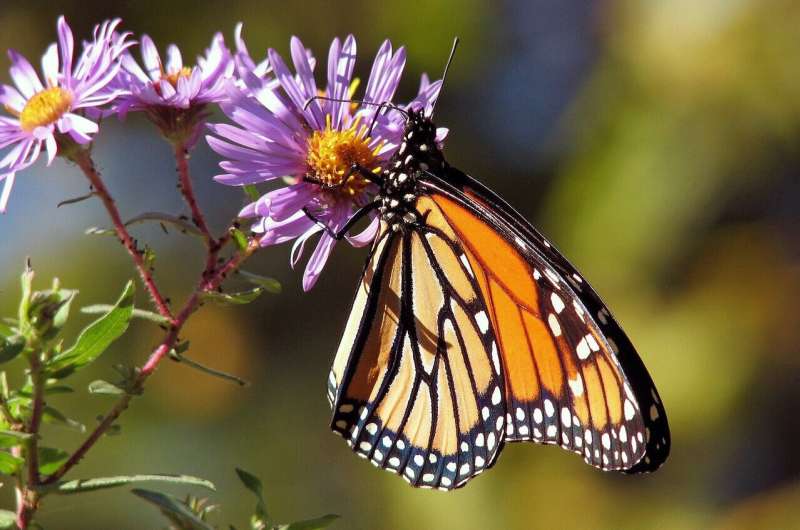Environmental actions are motivated by personal experiences

People's personal experiences with nature may work better than dire warnings to motivate environmental action, a new University of Michigan study found.
Researchers wanted to know what motivates people to take action about preserving the environment, so they analyzed a conservation campaign focusing on monarch butterflies.
The Environmental Defense Fund, like many other organizations, relies upon donations to fund its conservation efforts. It holds fundraisers and connects with the public through social media, its website and email campaigns. Their "Monarch Story Campaign" asked donors to visit the EDF website and share their own stories about monarchs.
People shared nearly 700 stories about their memories of monarchs in childhood and as adults. The stories described powerful feelings and joyous memories of personal encounters with "beautiful" monarchs and their "awe-inspiring" qualities. In addition, their stories raised conservation themes about monarch loss, the need for caretaking and calls for environmental action, the findings showed.
Sharing personal encounters was associated with efforts to save the species, such as planting milkweed for feeding monarchs. Other contributors described personal experiences with monarchs in yards and gardens and with mass migration. Describing personal experiences with monarchs was associated with more financial donations, the study indicated.
"Drawing on personal experiences with wildlife builds awareness and associations with species that may increase later motivation to help in their conservation," said U-M psychology professor Stephanie Preston, the study's lead author.
This means interaction with local species in science classes and outdoor experiences may build lifelong awareness, concern and actions for the environment, the researchers said.
"Fostering memorable one-on-one encounters between species may build personal engagement and create future conservationists," said co-author and U-M psychology professor Colleen Seifert.
The study, which appears in the current issue of Biodiversity and Conservation, was co-written by U-M researchers Julia Liao and Julia Speiser, and Theodore Toombs and Rainer Romero‑Canyas at the Environmental Defense Fund in New York.
More information: Stephanie D. Preston et al, A case study of a conservation flagship species: the monarch butterfly, Biodiversity and Conservation (2021). DOI: 10.1007/s10531-021-02183-x
Provided by University of Michigan



















